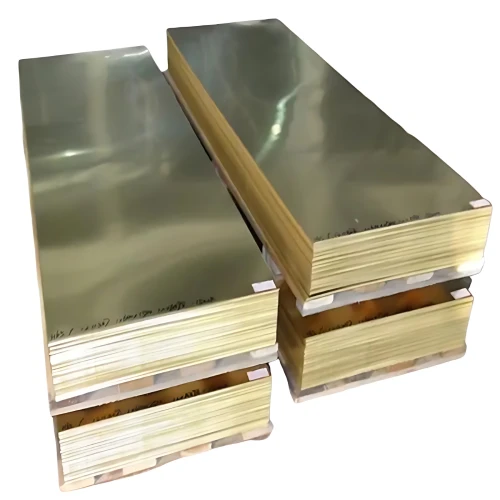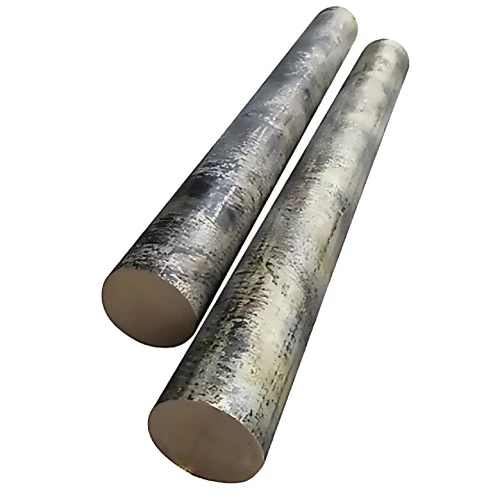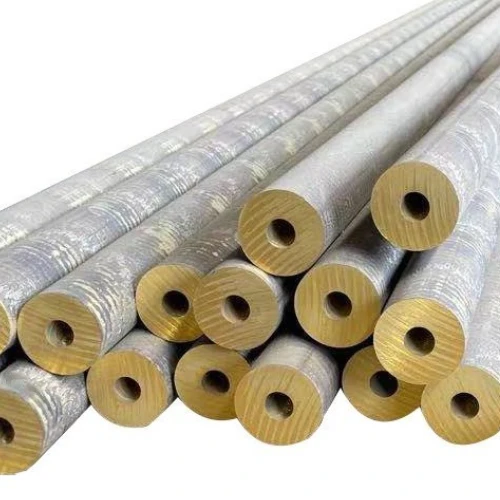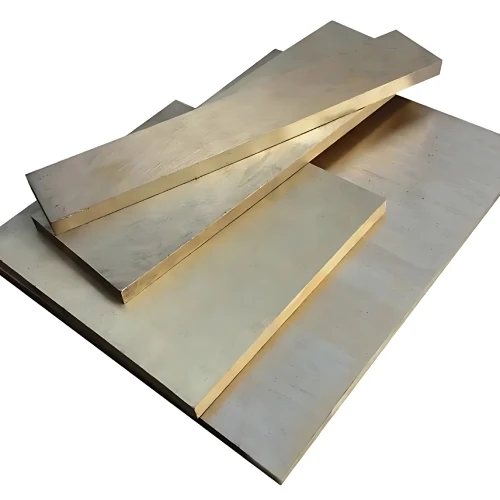C69100: Tungum - The High-Performance Copper Alloy for Marine Environments
C69100. also known as Tungum, is a copper alloy belonging to the aluminum-nickel-silicon brass family.
It's prized for its exceptional resistance to stress corrosion cracking and crevice corrosion,
particularly in saltwater environments. Here's a closer look at its key features:
Table: Key Properties of C69100
| Property |
Description |
| Chemical Composition |
- Primarily Copper (Cu): Balance <br> - Aluminum (Al): Nominal 1% <br> - Nickel
(Ni): Nominal 1.2% <br> - Silicon (Si): Nominal 1% <br> - Other (Fe, Zn, etc.):
Trace amounts
|
| Mechanical Properties |
- Good tensile strength and yield strength <br> - Excellent resistance to stress corrosion
cracking and crevice corrosion in seawater <br> - Good workability for forming processes
|
| Common Brands (By Country) |
- Europe: CuSi3 [Europe], CW700R [Europe] <br> - US: Tungum |
Important Note: Brand names might vary depending on the supplier.
Common Questions and Answers:
What are the typical applications of C69100?
C69100 excels in environments demanding exceptional resistance to saltwater corrosion, making it ideal for
various marine applications:
Fasteners: Bolts, nuts, and other fasteners used in boat building and offshore structures
benefit from C69100's corrosion resistance.
Piping and tubing: C69100 is a suitable choice for pipes and tubes handling seawater in
various marine systems.
Heat exchangers: Due to its good performance in saltwater environments, C61900 can be used
for heat exchangers in marine applications.
Decompression chambers: Living quarters and other components in decompression chambers for
divers can utilize C69100 for its strength and corrosion resistance.
What are the advantages of C69100 compared to other copper alloys?
C69100 offers several benefits for marine applications:
Exceptional corrosion resistance: In saltwater environments, C69100 stands out for its
resistance to stress corrosion cracking and crevice corrosion.
Good workability: C69100's composition allows for good workability during forming
processes required for various marine components.
Non-magnetic and non-sparking: These properties make C69100 suitable for applications where
safety around sensitive equipment is crucial.
Are there alternatives to C69100?
While C69100 excels in marine environments, other options might be considered depending on the specific
application:
Stainless steels: Can offer superior corrosion resistance but might be more expensive and
heavier.
High-nickel copper alloys: Provide good corrosion resistance, but might not be as effective
against stress corrosion cracking as C69100.
Important Note: Always consult with a material engineer or supplier to identify the most
suitable alloy for your specific marine application considering factors like required corrosion resistance
level, workability, cost, weight limitations, and the specific environment the component will operate in.



